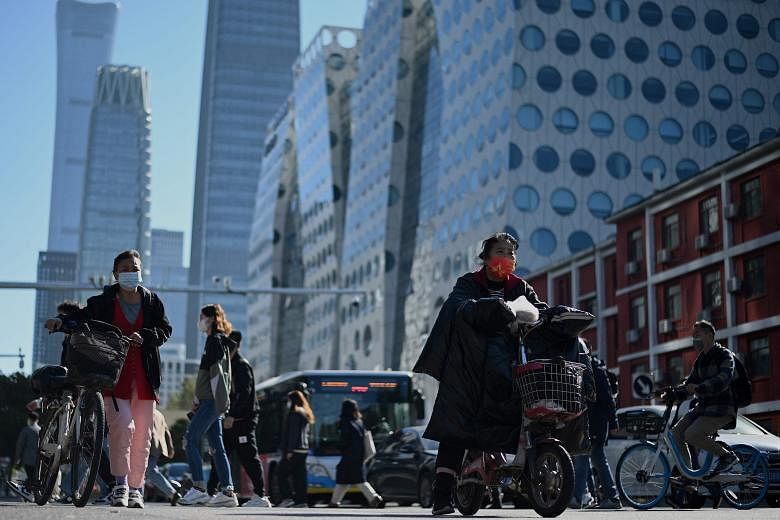SINGAPORE - Singapore and Chinese companies can deepen their collaboration to access new opportunities as the world transits to a post-Covid-19 new normal, Minister of State for Trade and Industry Low Yen Ling said on Thursday (Oct 14).
Speaking in Mandarin at the Singapore-China Business Forum, Ms Low outlined three areas - the digital economy, green economy and biomedical sciences - in which both countries can work together.
On the first, she said the pandemic has accelerated growth in cross-border e-commerce and increased demand for digital services.
China is the world's second largest digital economy, she noted, producing globally leading digital companies like Alibaba, Tencent and Bytedance.
Such companies have established a presence in Singapore where they recruit global talent and manage their international operations.
"Our companies can also partner them to seize opportunities together in South-east Asia's fast-growing digital economy."
The virtual forum, organised by the Singapore Chinese Chamber of Commerce & Industry, aims to promote business exchange between the two countries and help local businesses to better understand the business environment and investment opportunities in China.
Ms Low said the second area of possible collaboration is in the green economy. "Greening and environmental protection have always been important to Singapore, and I believe our companies have a lot of experience which they can share with their Chinese counterparts," she said.
She noted that Singapore is working towards creating new jobs and transforming industries to harness sustainability as a competitive advantage, under the Singapore Green Plan 2030.
Singapore has pledged to peak carbon emissions around 2030 and achieve net-zero emissions as soon as viable in the second half of the century.
China has made similar commitments to peak carbon emissions by 2030 and achieve carbon neutrality by 2060.
"As both countries work towards a greener future, there will be an increasing demand for green solutions such as renewable energy and energy efficiency, providing market opportunities for Singapore and Chinese companies," Ms Low said.
The last area, biomedical sciences, is important to both countries, she said.
"We face similar challenges - including an ageing population and the fight against the Covid-19 pandemic. There are, therefore, many opportunities for us to work together."


